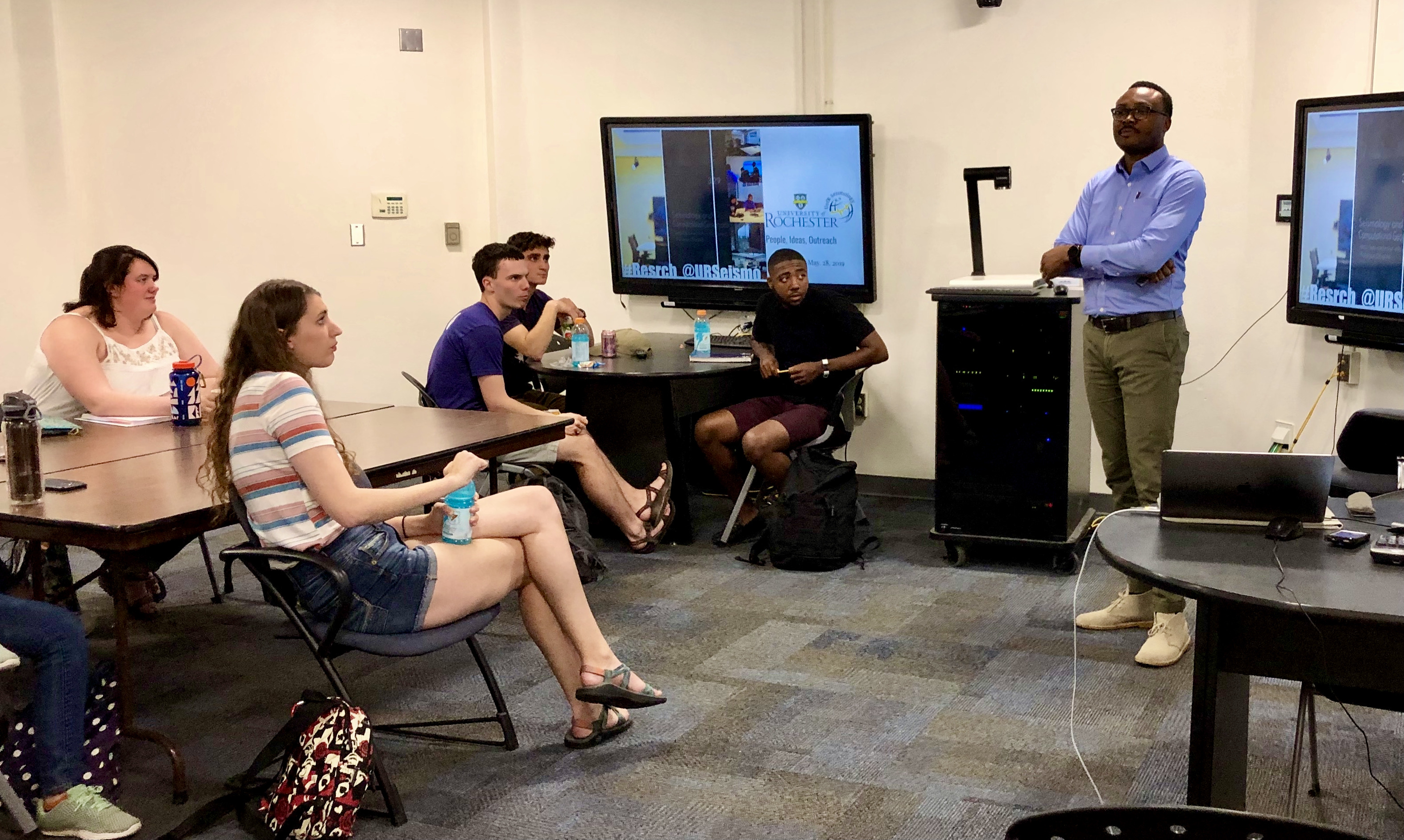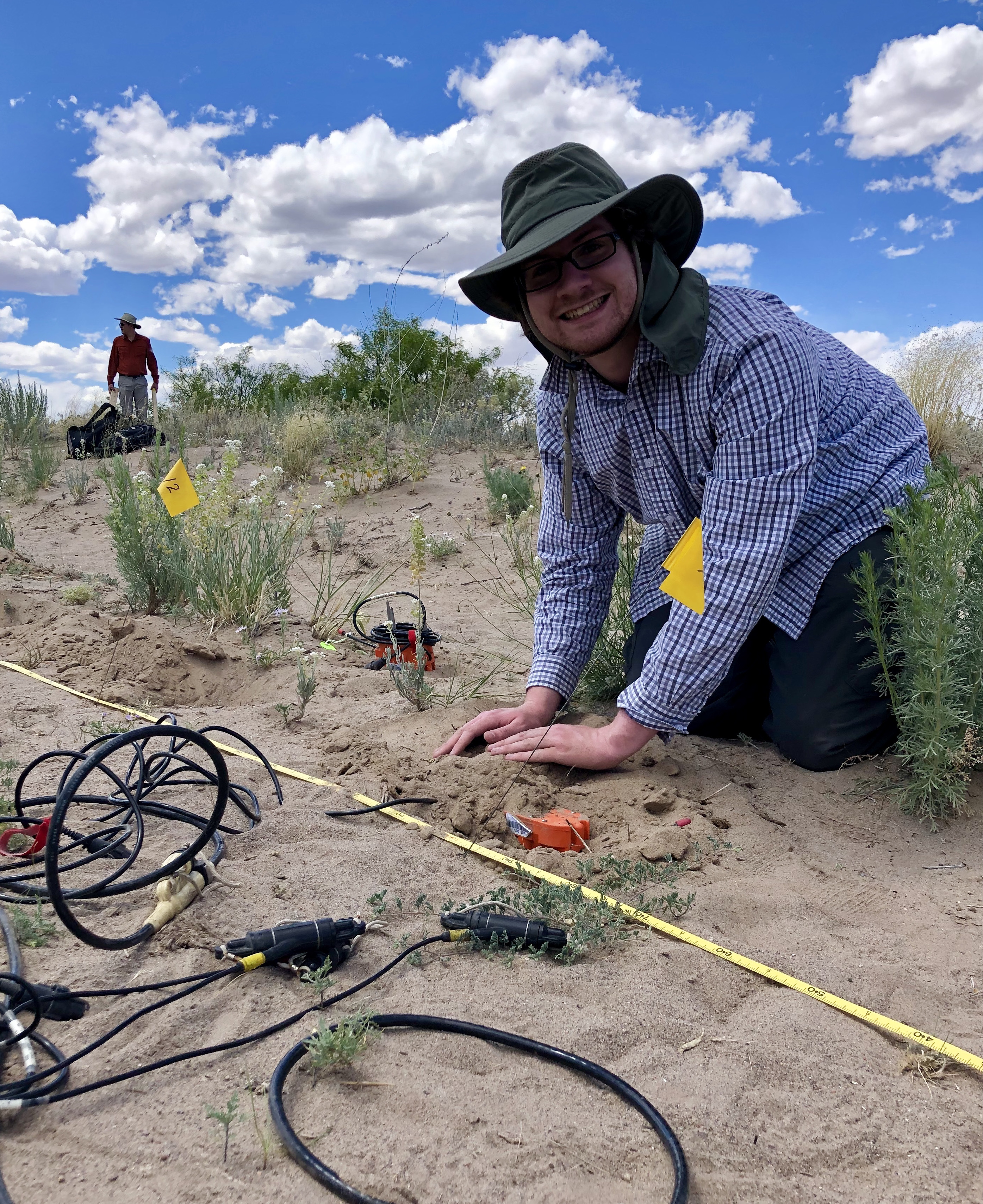Interested in a career in geophysics?
What is geophysics?
More content to come soon!
What are the employment prospects for the geophysics field?
More content to come soon!
What classes should I take?
 If you are interested in a career in geophysics and happen to attend an institution that offers an undergraduate degree in geophysics, your in luck! The geoscience department on your campus should be able to advise you on what classes are needed for that degree program. However, if your campus doesn't offer a geophysics degree, and many do not, we can suggest some courses for you to consider!
If you are interested in a career in geophysics and happen to attend an institution that offers an undergraduate degree in geophysics, your in luck! The geoscience department on your campus should be able to advise you on what classes are needed for that degree program. However, if your campus doesn't offer a geophysics degree, and many do not, we can suggest some courses for you to consider!
There are lots of starting points within the undergraduate curriculum that can lead to a career in geophysics. These include majors such as math, physics, computer science, and engineering. Each of these majors has their own degree requirements that must be fulfilled. However, often there are opportunities to supplement these with courses with extra science courses that count toward your degree program. For example, if you are majoring in physics, you'll need to take basic physics courses, plus whatever other science courses you choose. Given your interest in geophysics, these could be in the geosciences! It is important to note that while these are not course requirements, they are also not necessarily "electives." Elective courses are well outside of your chosen degree program. Elective classes give you exposure to other topics, such as language, history, humanities, music, etc., and are just as important as your science classes! Choosing your electives carefully can give you a robust skill set that is tailored to your interests and gives you a competitive edge for graduate school and employment. Thus, you will want to think carefully about the elective courses you select as well.
Common Coursework for Geophysics
The following list outlines common coursework options that would be help you pursue a goal of a geophysics career. Please note that one does not need to take ALL of these courses. Of course some may be required for your own major so you may have more of these than you think!
Geoscience Courses:
- Entry-level geology courses and labs, to include Physical, Historical, and Structural Geology
- Surface Processes Courses: Hydrogeology and/or Oceanography
- Quantitative Courses: Geophysics, Geodynamics, and/or Geomorphology if they are available at your campus
- Introduction to Field Geology (if applicable)
Non-Geo Courses:
- Calculus I (Limits and Differential Calculus), Calculus II (Integral Calculus), and Calculus III (Multivariable Calculus)
- Linear Algebra and/or Differential Equations
- Calculus-Based Physics courses (usually at least 2 semesters plus a laboratory), like Classical Mechanics and/or Principles of Electricity and Magnetism, and potentially through quantum and optics
- Computing or Computer Science courses
Helpful Electives:
- Technical Writing
- Geographic Information Systems (GIS)
- Public Speaking or another communications course
Other Learning Opportunities:
In addition to campus based course work there are many other learning opportunities available to students seeking a career in geophysics. 
- Seismology Skill Building Workshop - In 2020 IRIS initiated a FREE tutorial-based e-learning opportunity for undergraduates to develop their skills in scientific computing within seismology. Through this workshop students learn to request and work with seismic data using a variety of tools common to the field of seismology including SAC, Python (Obspy), and Jupyter notebooks. This opportunity is open to any undergraduate student regardless of major or academic level and runs annually for 12 weeks in the summer. The workload is ~5-6 hours per week and can be completed on your own schedule. Learn more about the IRIS Seismology Skill Building Workshop here.
- Geophysics Field Camps - There are a number of geophysics field camps that can be found through online searches. Many are ~4 weeks long and offer opportunities for students to become familiar with the equipment and data collected through multiple geophysical methods, as well as elements of experimental design.
- Research Experiences for Undergraduates (REU) Programs - These are usually 8-10 week opportunities for students to gain in depth experience working with data for the purposes of research. This intensive experience offers opportunities for students to become intimately familiar with a single technique or approach through close collaboration with an experienced science mentor, while also learning about the scientific research endeavor broadly.
This page has been adapted from work developed as part of the IRIS Career Module Project.


